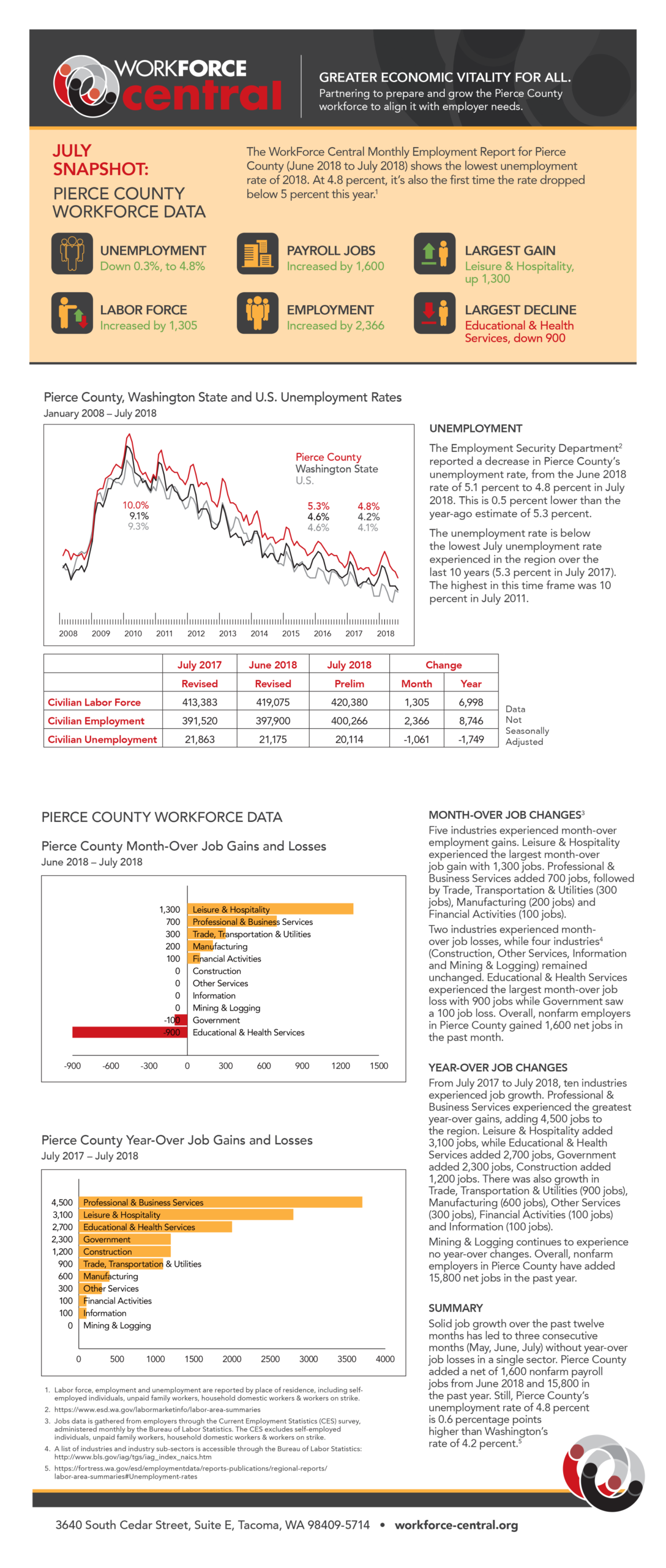By Morf Morford
Tacoma Daily Index
The good news is that the economy is improving.
The bad news is that the economy as a whole is recovery very slowly, and the recovery we are seeing is uneven, unsteady and includes some areas – geographical or economic – while ignoring others.
Across the country, big cities are getting bigger and smaller towns are struggling to survive.
Online sales seem to gobble up brick and mortar stores. Major anchor department stores like Sears, JCPenney’s and Macy are barely holding on – or are closing stores entirely. Retail employment is dropping.


By standard measurements, we are in the longest recovery in decades. The Great Recession (1*) ended in June of 2009. We are in the longest and slowest “recovery” in our lifetimes. (2*) The economy is getting better and gaining momentum – especially in some areas and industries. But one of the key questions is – how long will this “recovery” last?
Employment is up, but more and more workers have more than one job – especially those under 35 or so.
Wages for most workers, have not kept up with inflation and have barely changed in ten or more years. Technology and out-sourcing continue to eliminate thousands of jobs.
Even industries that are prospering are laying off workers (https://www.theguardian.com/us-news/2018/aug/28/att-earns-record-profits-layoffs-outsourcing-continue).
Tariffs, crazy weather and shifting trade agreements add to the instability.
If you look at our economic history, we have a recession about every ten years. In retrospect, the signs seem obvious, but recessions always seem to take us by surprise.
Employment in housing construction is higher than ever (see details here – https://www.abc.org/News-Media/Construction-Economics/State-by-State-Construction-Economics/entryid/15449/july-construction-unemployment-rates-down-in-every-state-year-over-year-says-abc).
But is it what we need? Most new housing in Tacoma is “high end.” Is there a stable market for those housing units?
Will they stand empty for months, if not years, like those in cities of China and Canada?
Large construction projects take years – many years – between planning and completion – and an economic glitch anywhere in the process can doom a promising project – sometimes permanently.
If you have been to Canada lately – especially the big cities like Toronto or Vancouver – housing prices might send you into Sasquatch-scale sticker shock. A closer look shows something even more peculiar – according to some studies, one in five real estate sales in Vancouver and Toronto is to an investor who holds – and never uses the property.
This is the foundation of a housing bubble.
Housing sales in Canada’s urban areas are dropping (https://www.businessinsider.com/toronto-housing-bubble-home-sales-fell-22-in-may-2018-6). Who can afford those prices?
And if Canada’s real estate market doesn’t scare you, take a look at China’s. China’s “ghost cities” are the stuff of legend, but the sheer scale of China’s economy means than any trend or false move (3*) will ricochet through the global economy.
If China’s housing market – and construction – has a boom period, it impacts the price of construction materials. Remember the exorbitant price of copper a few years ago? That was because of demand from China.
Remember that story about how China used as much concrete in three years as the United States in one hundred years? (3*)
Housing is the ultimate economic indicator. Climbing prices can lead to a housing construction boom which can lead to increasing employment and rising prices of raw materials. Collapsing prices can lead to financial crises and capital flight – which can cause upheaval around the world.
A stable economy is to everyone’s benefit.
(1*) The word “recession” is a verb. A recession is five consecutive quarters of economic decline. The word “depression” is a noun, and describes a stable, unmoving condition.
(2*) https://www.theguardian.com/business/2018/apr/28/america-long-slow-boom-recovery-last-economics
(3*) https://www.wsj.com/articles/chinas-housing-market-headache-1534313861









